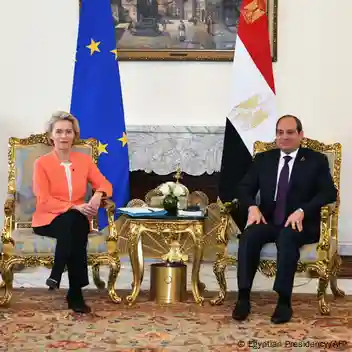
The European Parliament has approved a €4 billion macro-financial aid package for Egypt, marking a significant milestone in European efforts to bolster economic stability in a region facing mounting challenges.
The decision, endorsed during a plenary session in Strasbourg on Wednesday, represents the second tranche of financial support allocated to Cairo as part of a broader recovery strategy.
After nine months of intensive deliberations involving the International Trade, Foreign Affairs, and Budget committees, the vote passed with overwhelming support. The financial assistance is aimed at reinforcing Egypt’s economic resilience against global shocks and supporting its structural reform agenda over the medium term.
Ahmed Abu Zeid, Egypt’s Ambassador to the European Union, welcomed the outcome as a “testament to the strength and strategic depth of the Egypt-EU partnership.”
Speaking after the session, he highlighted the role of sustained diplomatic engagement with Members of the European Parliament (MEPs) and political blocs in securing the favorable vote.
“This support reflects our shared interests and common commitment to long-term cooperation,” Abu Zeid said. He also emphasized Egypt’s pivotal role in regional stability across the Middle East and Africa, underlining the country’s strategic importance to European foreign policy and migration management.
Although the European Parliament has approved the aid package, the final disbursement remains contingent on formal ratification by the Council of the European Union, expected in the coming days.
The €4 billion will help Egypt navigate economic volatility, while enabling reforms in critical sectors such as energy, public finance, and job creation.
It is designed to complement efforts by international financial institutions, including the International Monetary Fund (IMF), which has also been engaged in supporting Egypt’s economic recovery.
This latest move by Brussels further cements Europe’s role as a key partner in Egypt’s development journey, at a time when global economic uncertainty continues to challenge emerging markets.



